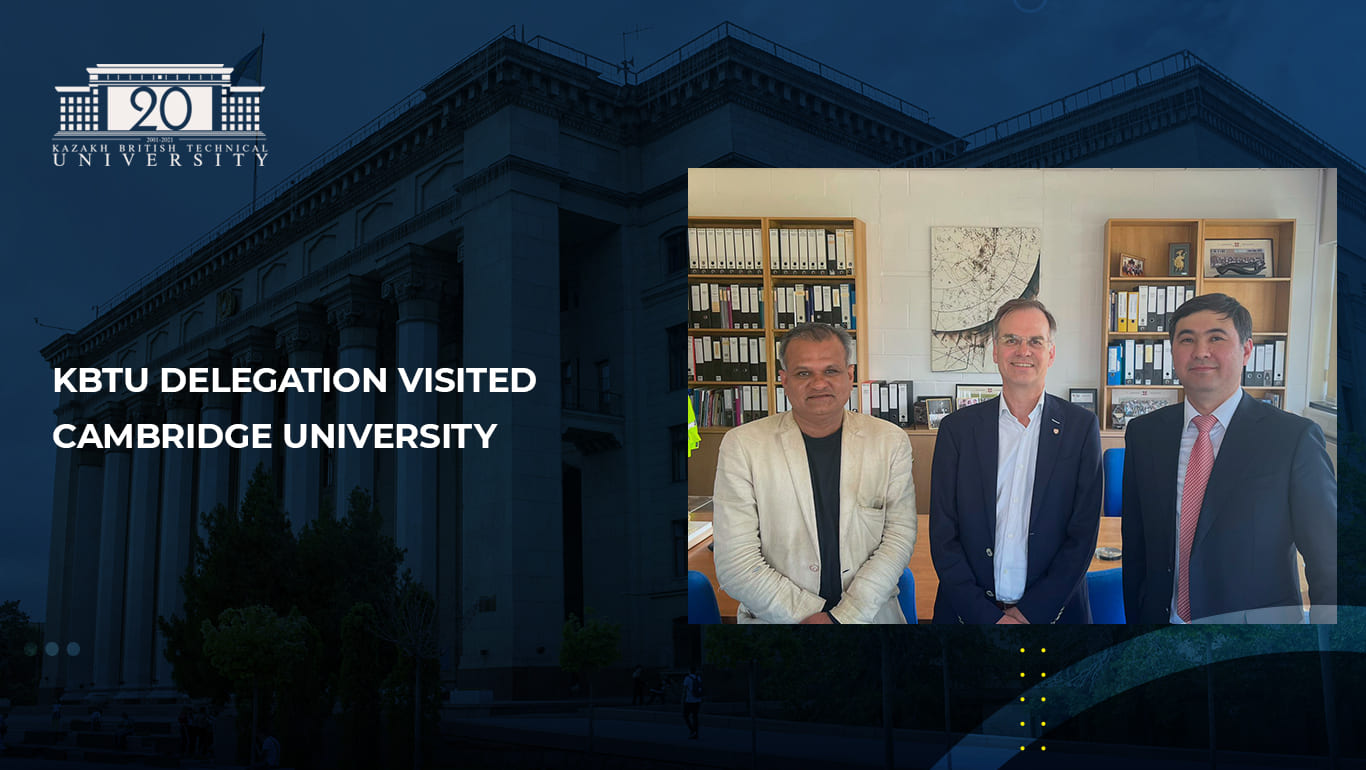The University of Cambridge is one of the most prestigious institutions of higher education in the world, founded over 800 years ago. The contribution of the university to the development of global science and technology cannot be overestimated; more than a hundred Nobel laureates have come out of this university. Rector of KBTU Professor Gabdullin M.T. and a graduate of Cambridge, professor of KBTU Laumulin C.T., met with the head of the Cavendish Laboratory of the University of Cambridge, Professor Andy Parker. It is the largest and most influential department of physics in the world, which has made such discoveries that influenced the development of modern civilisation as the discovery of the electron, neutron and participation in the development of the structure of the atom, the structure of DNA and many others. More than two hundred isotopes were synthesised in the laboratory (one of the largest quantities among laboratories in the world). About 40 laboratory researchers received Nobel Prizes. A distinctive feature of Cambridge education is the so-called face-to-face learning, in which students from the very first years are involved in scientific and experimental work with their mentors.
During the meeting, issues of prospects and details of joint research in specific disciplines, the creation in Almaty under the auspices of Cambridge scientists of a scientific and experimental centre of advanced science and technology were discussed. An agreement was reached on the visit of Professor Parker to Kazakhstan in the autumn of 2022 to speak up in the walls of KBTU at the upcoming UNECE conference on sustainable development.
In the second photo - Rector of KBTU Gabdullin M.T. in the chair of Professor Maxwell, founder of the Cavendish Laboratory; Professor Parker and colleagues from KBTU.



